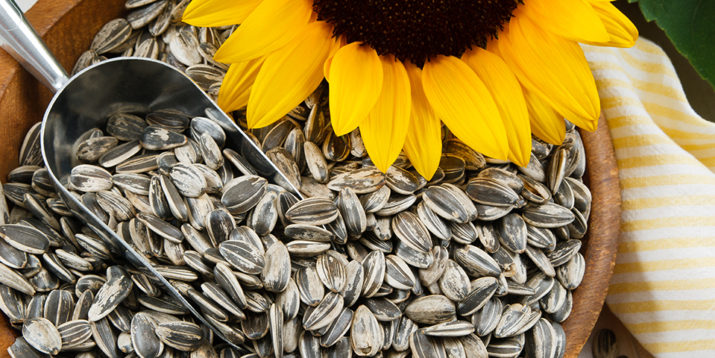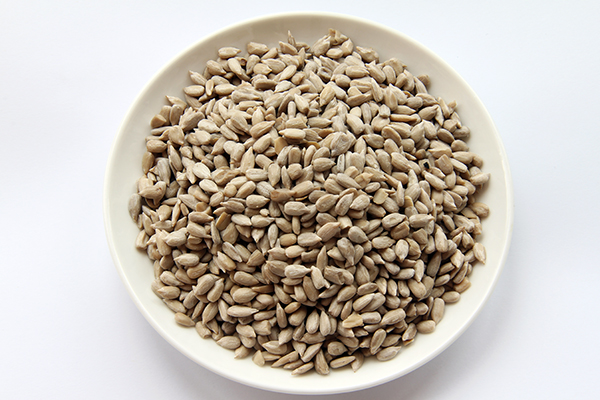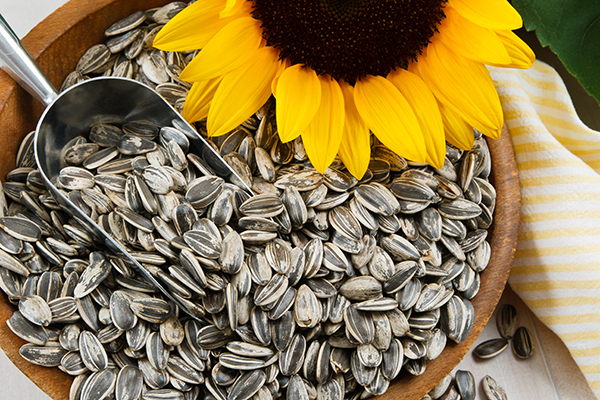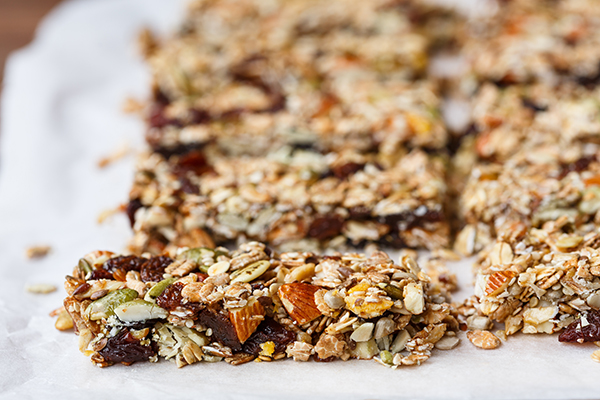Are Sunflower Seeds Healthy?

Sunflower seeds are a staple in baseball dugouts and the unsung heroes of trail mix. (No offense, raisins.)
But there are so many other creative ways to enjoy these edible seeds.
Add them to salads or as a frozen dessert topper — they work well with both sweet and savory dishes, says Dana Ellis Hunnes, Ph.D., M.P.H., R.D., a senior dietitian at RR-UCLA Medical Center and author of the upcoming book, “Recipe for Survival.”
Sunflower seeds can also be blended into smoothies, mixed into oatmeal, baked into energy bars, ground into an addictive dessert called halva, sprinkled on avocado toast, added to a superfood bowl, or just eaten alone.
In other words, they’re pretty versatile. But, like other nuts and seeds, they’re not a low-calorie food.
So are sunflower seeds healthy? How does the humble sunflower seed fit into a balanced diet?
Here’s what you need to know.
The Benefits of Sunflower Seeds

Is eating sunflower seeds good for you? It can be!
Seeds are nutritionally dense, which means they can be an easy way to get several macro and micronutrients you need.
As with any other food, the calories in sunflower seeds can add up quickly if you don’t watch your portion sizes. But there are several benefits to working them into your diet.
They’re nutritional powerhouses
Sunflower seeds boast a laundry list of nutrients.
“Sunflower seeds are high in vitamin E, thiamine (vitamin B1), vitamin B6, iron, copper, selenium, manganese, and zinc — vitamins and trace minerals the body needs for good health,” Hunnes says.
They provide antioxidants
Antioxidants — like the vitamin E in sunflower seeds — help counter oxidative stress, which research suggests may contribute to certain chronic health conditions.
Sunflower seeds are also rich in selenium, which acts as an antioxidant in the body, says Quyen Vu, M.S., R.D.
They’re a source of healthy fats
Although sunflower seeds do offer some plant-based protein, the bulk of their calories comes from heart-healthy fats.
Will Sunflower Seeds Make You Gain Weight?

“Anything will make you gain weight if you eat too much of it,” Hunnes notes, and sunflower seeds are no different.
Sunflower seeds are calorie-dense, and some people find it challenging to stick to a single serving — which is one ounce of hulled seeds, or ¼ cup.
“You wouldn’t want to overeat sunflower seeds if your goal is weight loss,” Vu says.
But as long as you pay attention to portions, sunflower seeds won’t inherently make you gain weight.
“It takes about an extra 3,500 calories to gain one pound of body weight,” Vu explains — so just make sure you’re not consistently overdoing it.
Likewise, there’s no special compound in sunflower seeds that will help you lose weight, but they can be a great addition to a balanced diet.
How Many Sunflower Seeds Should You Eat in a Day?

Because sunflower seeds are calorically dense, Vu suggests limiting your intake to a couple of teaspoons — or up to two tablespoons — of the hulled seeds per day for salad toppings or garnishes.
As a snack, ¼ cup of hulled seeds “is a good portion size that will definitely help keep you satiated,” says Hunnes.
This is the standard serving size, which provides roughly 200 calories.
You could enjoy this all at once as a snack — either plain or in our Maple Cinnamon Seeds recipe — or break it up throughout the day.
Just be mindful that these calories are mostly from fat, so you may want to use them in a recipe that balances sunflower seeds with satiating protein, like our sunflower shake.
But as long as you don’t overdo it, “they can definitely be a part of a diet intended for weight loss,” Vu says.
Looking for more expert nutrition information? Head over to BODNutrition.com and learn how to eat healthy for the long term with the help of our two nutrition programs, 2B Mindset and Portion Fix.
